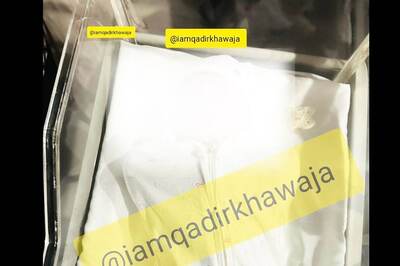
views
Beijing: Working conditions at Chinese manufacturing plants where Apple Inc's iPads and iPhones are made are far better than those at garment factories or other facilities elsewhere in the country, according to the head of a non-profit agency investigating the plants.
The Fair Labor Association (FLA) is beginning a study of the working conditions of Apple's top eight suppliers in China, following reports of worker suicides, a plant explosion and slave-like conditions at one of those suppliers, Foxconn Technology Group.
Auret van Heerden, president of the FLA offered no immediate conclusions on the working conditions, but he noted that boredom and alienation could have contributed to the stress that led some workers to take their own lives.
In addition to Foxconn, FLA investigators will later visit facilities of Quanta Computer Inc, Pegatron Corp, Wintek Corp and other suppliers, who are notoriously tight-lipped about their operations.
After his first visits to Foxconn, van Heerden said, "The facilities are first-class; the physical conditions are way, way above average of the norm."
He spent the past several days visiting Foxconn plants to prepare for the study.
"I was very surprised when I walked onto the floor at Foxconn, how tranquil it is compared with a garment factory," he said. "So the problems are not the intensity and burnout and pressure-cooker environment you have in a garment factory. . It's more a function of monotony, of boredom, of alienation perhaps."
He noted that the organization has been dealing with suicides in Chinese factories since the 1990s.
"You have lot of young people, coming from rural areas, away from families for the first time," he said. "They're taken from a rural into an industrial lifestyle, often quite an intense one, and that's quite a shock to these young workers.
"And we find that they often need some kind of emotional support, and they can't get it," he added. Factories initially didn't realize those workers needed emotional support."
Van Heerden dismissed the notion that his organization might paint a cursory and positive picture of Apple's suppliers.
Companies that join the FLA abide by rigorous commitments, and their interests are balanced by non-governmental organizations and more than 200 universities that sit on the board of the organization with the corporations, he said.
FLA evolved from a group originally convened by U.S. President Bill Clinton in 1996 with the goal of reducing sweatshop labor around the world. Its board includes executives from sneaker companies Nike and Adidas.
"Apple didn't need to join the FLA," he said. "The FLA system is very tough. It involves unannounced visits, complete access, public reporting.
"If Apple wanted to take the easy way out there were a whole host of options available to them," he added. "The fact that they joined the FLA shows they were really serious about raising their game."
Responses entered on iPads
Some 30 FLA staff members are visiting two Foxconn factories in Shenzhen in southern China and one in the central city of Chengdu. Each plant has about 100,000 workers, although not all work on Apple products.
Over three weeks, some 35,000 workers will be interviewed about 30 at a time to answer questions anonymously, entering their responses onto Apple iPads.
Questions will include:
- how the workers were hired
- if they were paid a fee
- if they were offered and signed contracts and whether they understood them
- the condition of their dorm rooms and food
- if complaints are acted upon
- their emotional well being
The data will be uploaded immediately and consolidated, and an interim report will be made public in early March.
The eventual FLA report will identify areas the suppliers need to improve and offer suggestions, van Heerden said.
"There might not be a clear policy on hiring, that could lead unwittingly to discrimination against hepatitis B sufferers," he said as an example.
"There might not be adequate documentation that could lead to the risk that workers get hired with fake documentation, that underage workers come in . We can recommend very specific actions they can take."




















Comments
0 comment